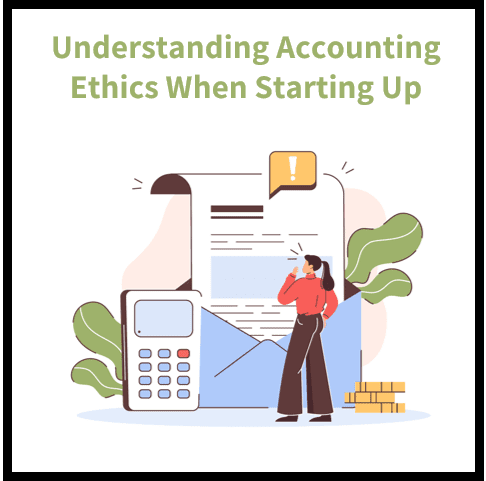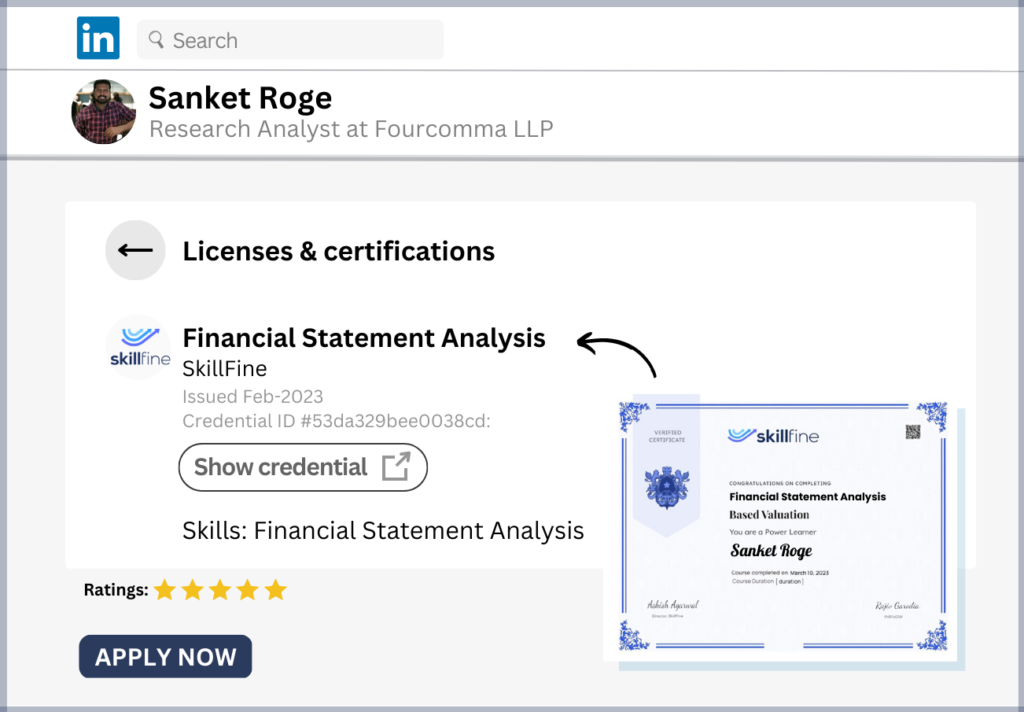Starting your own business can be a challenge, to say the least. The level of responsibility that comes with running your own business is intimidating, to say the least. The idea of being your own boss and making decisions on your own can be scary. There are a lot of things to consider, such as the type of business you want to start and where you see it going in the future. If you are thinking of starting a business with your partner or a group of people to earn money, then accounting is probably one of the first subjects that come to mind.
A business doesn’t just need accounting skills; it also needs an understanding of accounting ethics. Startups can be challenging, but starting a business and keeping it running can be even more difficult. As much as you may want to dive into the world of business, it’s important that you take the time to understand accounting principles first. This will not just protect you from any potential traps or pitfalls, but will also help you maintain a positive reputation throughout the business community.
Accounting is a subject that is essential in almost every business. It is the measurement and analysis of these business transactions and their financial results. Understanding accounting will help you understand numbers and the relationships between them. This not just helps you in understanding your business balance sheet, but also the cash flow statement, profit and loss statement and other statements that give a complete picture of your business.
What is Accounting Ethics?
According to Harvard Business Review, accounting is the “science of measuring and analyzing the flow and use of resources to achieve intended results.” In other words, accounting is the practice of quantifying and analyzing all the transactions that take place within an organization, from sales and purchases to assets and liabilities.
Every business needs accounting to be successful. Whether you own a small bakery or a large corporation, you need to understand the numbers in order to make informed decisions.
Why is Accounting Ethics Important?
In order to make informed decisions, you need to be able to look at the numbers behind your business. That’s why accounting is so important. But accounting isn’t just important for businesses. It’s also important for investors, lenders, and anyone else who cares about understanding the financial health of the organization they’re investing in.
5 Questions You Need to Address When Starting a Business
The first thing that you need to do when starting a business is to understand the numbers. You can’t just start selling lemonade and hope that everything works out. You need to understand the potential risks, what it will take to make your business profitable and most importantly, how you will make money.
The next step is to decide whether you want to go the route of hiring an accountant or if you want to become a Certified Public Accountant (CPA). Here are some of the things that you will need to think about when making this decision:
– Your financial situation – Understanding your finances and your business’s current situation are two key parts of starting a business. If you aren’t sure where you stand financially, then you need to understand that as well.
– Your business type – This is an important question, especially if you want to start a business that involves transactions or products that are new to the market. Are you dealing with a new type of product or service?
– Your business plan – If you want to hire an accountant, then you need to give them a plan as to how you plan on making money. You will most likely need to hire someone with experience in your industry, so having a plan helps you narrow down your search.
– Your budget – This one is straightforward. You need a budget to know where you stand financially. If you aren’t sure where to start, then you can use budgeting software to make things easier.
– How qualified you are – You need to have a solid understanding of accounting principles as well as have hands-on experience in order to be qualified to do bookkeeping or accounting.
Decide Whether You Want to Hire or Become a Certified Accountant
If you are interested in hiring an accountant, then you need to decide whether you want to go the route of hiring an accountant or becoming a Certified Public Accountant (CPA).
– Hiring – If you decide to go with hiring an accountant, then you need to give them a plan as to how you plan on making money. You will most likely need to hire someone with experience in your industry, so having a plan helps you narrow down your search.
– Becoming a CPA – If you want to become a CPA, then this is the route that you want to take. You can either complete a two-year Associate in Accounting degree or a four-year Bachelor of Accounting degree program. There are also a number of online CPA programs that can help you complete your degree while still working full-time.
How to Achieve Accounting Ethics in Your Business
If you want to start a business, then you need to understand accounting principles. This will help you understand the numbers behind your business, as well as protect you from any potential risks.
The first thing that you need to do is to understand your numbers. This means collecting information about your customers, their demographics, their behavior and their interests. This will help you understand where they are coming from and what they are looking for.
The next step is to identify the risks associated with your business. You need to identify any hidden risks that exist with your business and see if there are ways to mitigate them.
6 Essential Elements of Accounting Ethics
When it comes to the ethical practices of accountants and the protection of clients’ interests, there are five essential elements that all accountants need to consider. These include the following:
– Confidentiality – This means ensuring that all information about a client is kept private and that no one is allowed to share that information with anyone else.
– Accuracy – This means that every financial report or account that an accountant creates is accurate and free of errors.
– Integrity – This means that every financial decision that is made is made with the client’s best interests at heart and is not influenced by any outside factors.
– Independence – This means that every financial decision that is made is made without any outside influence.
– Responsibility – This means that every accountant takes full responsibility for any decisions that they make and consequences that come as a result of those decisions.
– Professionalism – This means that accountants always conduct themselves in an ethical manner.
Conclusion
In summary, accounting is the science of measuring and analyzing the flow and use of resources to achieve intended results. It is the practice of quantifying and analyzing all the transactions that take place within an organization, from sales and purchases to assets and liabilities.
The first step in any business is to understand the numbers behind your business. Once you have done so, you can identify any hidden risks that exist with your business and see if there are ways to mitigate them.
When starting a business, you must decide whether you want to hire an accountant or become a certified public accountant. You must also decide whether you want to keep your finances private or make them public. Finally, you must decide whether you want to use traditional accounting or use a budgeting and forecasting system.



3 thoughts on “Understanding Accounting Ethics: 5 Questions to Address When Starting a Business””
[…] a business founder, you should know how to talk finance and be comfortable with using financial jargon in a conversation. You should be able to hold your […]
Your article made me suddenly realize that I am writing a thesis on gate.io. After reading your article, I have a different way of thinking, thank you. However, I still have some doubts, can you help me? Thanks.
Thanks for sharing. I read many of your blog posts, cool, your blog is very good.